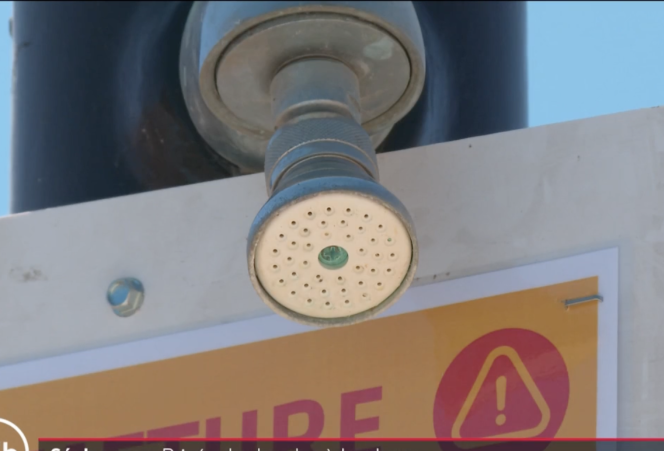The cut valves
Thursday 1er June, the municipality of La Ciotat interrupted the water supply to the nine showers on the beaches of the town of 36,000 inhabitants. The decision was taken by the municipal majority of Mayor Arlette Salvo (LR) and by his deputy Jean-Marc Martinez, delegate for environmental issues. “Our site has been classified Natura 2000 since this year, that is to say that it is part of a European network for the preservation of species and environments. In these conditions, it is essential to preserve our water resources, even before the state of drought emergency is declared by the Bouches-du-Rhône prefecture”, explains the chosen one, who continues: “The feeling of drought affects us all, the inhabitants of the city have understood this very well. We cannot ask people not to water and let vacationers take showers. »
Another relationship to the body
Located 30 kilometers east of Marseille, La Ciotat is considered one of the most beautiful bays in the world. Its industrial past made it a popular bathing spot for shipyard workers from the end of the 19th century.e century. With the generalization of paid holidays in the 1950s, the city became a popular seaside resort. “The first beach shower was installed in 1979, at a time when comfort was a priority”, says Jean-Marc Martinez. Like the cabin that made the beaches of Deauville or Noirmoutier famous, the shower is the symbol of a new relationship to the body that took shape in the 1970s. Historian Philippe Duhamel deciphers “the rise of the three S’s: sea, sand and sun [la mer, le sable et le soleil]. This symbolism of the liberation of the body is expressed above all on the beaches of the south of France which count, with Nice, Menton or Juan-les-Pins, high places of sunny tourism. The beach shower is the apotheosis of modern comfort. »
The Durance in danger
In a department affected by drought on a recurring basis, the question of beach showers has arisen for several years in the Bouches-du-Rhône. “The Durance, which supplies water to Provence, is seeing its flow rate decrease dangerously. It is an absolute necessity to preserve this river from misuse,” explains Isabelle Mazuc, EELV representative in La Ciotat. In Menton, they were closed last year. Further to the west, Sète and Cap d’Agde made the decision in 2019. Further north, in Charente-Maritime, the Royan showers were removed in 2022. “A three-minute shower wastes forty liters of water… the equivalent of three municipal swimming pools at the end of the season, not to mention the detergent pollution for those who take the opportunity to wash themselves”, continues Jean-Marc Martinez.
You have 20.45% of this article left to read. The following is for subscribers only.
